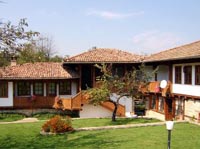Expats move to Bulgaria for various reasons such as work or retirement. There are also those who make the move for the purpose of leisure, Bulgaria being a country with a beautiful natural habitat, seaside resorts and attractive cities. Other reasons include a more affordable cost of living and economically priced real estate in comparison to western countries. While moving to Bulgaria has been a fulfilling experience for many, there may be potential disappointments for some. Here are 5 things you should know before moving to Bulgaria.It helps to learn the language
Bulgarian is the official language of the country and the alphabet used is Cyrillic. It may take a while to learn the language, but it could be worth the time and effort, as it will help you communicate with the locals, neighbors and new acquaintances. The locals are also likely to be more forthcoming with foreigners who know the language. The other option is to use translators, which can turn out to be expensive. In such cases you are also dependent on the interpretations of the translator. There are many locals who also speak English, however the police officers and officials in government offices still use only Bulgarian. Even a basic understanding of key phrases can make things quite convenient for you during your stay in Bulgaria.
Stay alert on the road
The road signs in Bulgaria are displayed in Latin using the Cyrillic alphabet, so an understanding of the language comes in handy here too. Driving here could pose a challenge for many newbies since the roads are not very well maintained, the lanes often lack appropriate markings and there are often quite a few heavy vehicles on the roads. The local drivers are known to be reckless on the road and you need to be alert as they drive by at high speeds and switch lanes without indicating beforehand. Although travelling in the countryside is an enjoyable experience, you need to look out for potholes, animals on the road and sometimes landslides. The rate of road accidents is known to be high in Bulgaria. In case of an accident, it is best to wait for the arrival of the police. The EU emergency number in case of any emergency situation is 112.
Crime and safety
Most people find Bulgaria to be a welcoming place and foreigners don’t have too many safety concerns. Some things to keep in mind are that since Bulgaria is one of the main exterior borders of the European Union and serves as a land gateway between countries of North Africa, Middle East and Europe; it does witness illegal migration and smuggling. The ongoing Syrian conflict has also added to the situation and the country is facing some strain as it attempts to provide housing and care for asylum seekers. There have also been some cases of political backlash from ultranationalists, who form a minority but can still affect the stability of the current parliament. Crime is taken seriously in the country and there are harsh punishments for violations.
Earthquakes
Many areas in Bulgaria are prone to earthquakes and small tremors are experienced almost throughout the year. The country sits in a region that is seismically active and borders areas of the North Bulgarian Swell and the West Rhodopes Fault are most susceptible to earthquakes. There also lies a fault line in the Razgrad region of the northeast where strong tremors are often recorded.
Temperate weather
Bulgaria is often thought of as a cold destination because of its mountain ranges and skiing resorts. But the country enjoys a temperate climate with cold winters and heavy snow on one hand, and hot, dry summers on the other. In the summer months, temperatures can rise to the mid-30s. But the weather is ideal for hiking trips and visits to seaside resorts. The Black Sea coast and the southern region experience the highest temperatures. The temperatures can stay up during springtime too, during April to mid-June. In recent times, Bulgaria has also witnessed heavy rainfall and thunderstorms in summer due to the prevailing environmental conditions. In such case, the weather office issues warnings for certain districts, which may experience flash floods due to the heavy rains.

